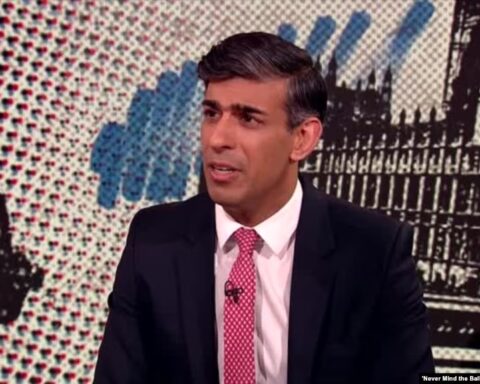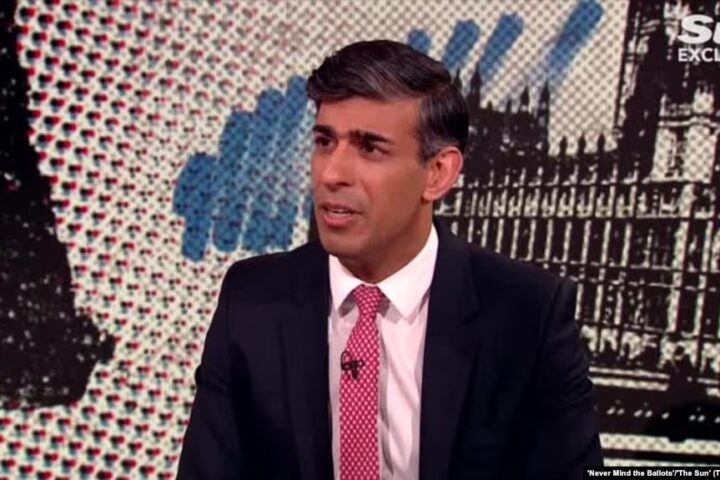Turkmen citizens going to Turkey are being asked to sign statements that they will not engage in anti-government activities and must find “guarantors” liable for their trip, according to a rights organization focused on Turkmenistan.
The latest travel agony for Turkmen strengthens the argument that anti-regime protests by Turkmen expats motivated the authoritarian regime in Ashgabat to ask Turkey to be excluded from Ankara’s list of countries subject to a visa waiver.
The Turkmen government has denied that is the case, claiming instead a desire to ensure the security of its citizens abroad.
Turkish authorities imposed new visa restrictions on Turkmen citizens in September.
The Turkmenistan Helsinki Foundation for Human Rights (THF) on March 5 published the transcript of an interview between two foreign-based Turkmen bloggers and a Turkmen citizen who traveled to Turkey last month.
The citizen, who used the name Gadam, said that the “guarantor” for a citizen’s trip should have an income of at least 2,000 manats ($100 according to the black-market rate).
“A visa will not be issued without a letter of guarantee. If a person does not return home [before the visa expires] the guarantor faces dismissal [from his job],” said Gadam.
RFE/RL’s Turkmen Service has confirmed that information, as well as reports that the guarantor should be an employee of the state — a fact that makes finding such a person a challenge for Turkmen without family members in government.
On the nonactivism pledge, Gadam recalled that, having received his Turkish visa, he was called into his local police station, where he was made to sign a document promising “not to participate in rallies and protests criticizing our government [or] in discussions on political issues that are held on the Internet.”
That includes a prohibition on “liking” politically inappropriate videos posted online, he said.
In Freedom House’s annual report, which was released on March 9, Turkmenistan was once again included in the watchdog’s “worst of the worst” for civil liberties, edged out only by Syria and South Sudan.

But it is the country’s grueling, near decade-long economic crisis that has strengthened emigration to Turkey, where the migration service recorded more than 220,000 Turkmen in January.
That trend only slowed thanks to a near two-year ban on regular flights to and from the country as part of anti-coronavirus measures that were eased last year.
And it was Turkmenistan’s inconceivable claim to have no cases of the disease that first fired up Turkmen activists, who began protests outside Turkmenistan’s diplomatic missions abroad, most notably outside its consulate in Istanbul, in 2020.
The demonstrations soon began to target other ills in Ashgabat’s authoritarian system.
Several Turkmen activists were detained in 2021 and threatened with deportation by Turkish authorities, though they were later released.
Last year, five activists were injured after being attacked on the grounds of Turkmenistan’s Istanbul consulate, where they were trying to submit a letter to new President Serdar Berdymukhammedov highlighting the human rights crisis in their homeland.
They alleged that one of the men who attacked them was an employee of Turkmenistan’s mission.
Verbal Orders
THF noted in its March 5 publication that the new measures being introduced by authorities for citizens seeking to travel to Turkey are contrary to Turkmenistan’s law on migration.
Yet, of the numerous authoritarian policies instituted by Turkmen authorities in recent years, few have been announced, published, or much less explained to the population.
In February, RFE/RL’s Turkmen Service reported that Turkmenistan’s migration service had temporarily ceased issuing biometric passports.
A government source told an RFE/RL correspondent that “a verbal order” had been given to slow the issue of passports for people who had applied for them.
Later that month, the Europe-based outlet Turkmen.News reported that the government was preventing citizens from reapplying for new passports until the final month of their passport’s validity.
Citizens could previously apply six months before their existing passport expired.
Travel restrictions on Turkmen were raised during a review of Ashgabat’s rights situation at the United Nations Human Rights Committee in Geneva this month.
Members of a Turkmen government delegation asked to justify their decision to request that Turkey impose travel restrictions on the country responded that “a visa regime with [Turkey] did not restrict movement but instead enhanced the safety of Turkmen citizens,” according to a report on the meeting published by the UN Human Rights Office (OHCHR).
But an RFE/RL correspondent in Istanbul said there was so far no evidence that the fresh restrictions were stemming the outflow of Turkmen to Turkey.
If anything, the number of incomers wearing Turkmen national clothes and speaking in the Turkmen language in Turkey’s largest city has grown in recent weeks, the correspondent said.
Gadam, the Turkmen citizen cited by THF, said that Ashgabat’s stance was logical since “the more people go abroad, the greater the threat to the authorities.”
“Are there problems in our country related to the lack of jobs, food prices, and corruption? Of course there are. Instead of solving them, the authorities continue to oppress the people,” Gadam said.















